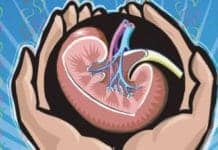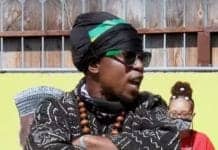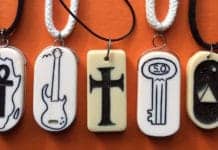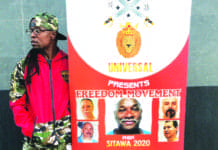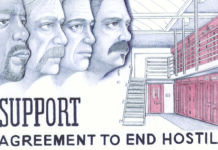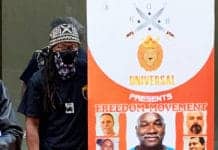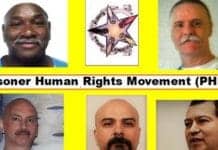by Todd Ashker, Arturo Castellanos, Sitawa Nantambu Jamaa (Dewberry) and Antonio Guillen
Feb. 11, 2014 – We are prisoners at Pelican Bay State Prison who have all lived for over 15 years locked 23 hours a day in small windowless cells, without ever being able to hug or touch our families, without ever seeing birds, trees or the outside world, with no programs or chance for parole. California keeps us in these torturous conditions not because of any violence we have committed, but because it believes we are affiliated with a gang, often based on artwork or photos we possess, tattoos we have, literature we read, who we talk to or anonymous informants’ statements that we have no way of challenging. We are put in Pelican Bay not for any specific term of months or years for misconduct we have committed, but indefinitely, which in practice means forever – unless we become informants.
California keeps us in these torturous conditions not because of any violence we have committed, but because it believes we are affiliated with a gang, often based on artwork or photos we possess, tattoos we have, literature we read, who we talk to or anonymous informants’ statements that we have no way of challenging.

So this is our banned testimony: CDCR claims to have now instituted a reform program. It is a sham, just like the so called reform they instituted a decade ago after a court settlement which resulted in no real change. This new reform effort still maintains the basic conditions at Pelican Bay, and will continue to keep prisoners in isolation for vague gang affiliation based on artwork, literature, communications or informants’ testimony that does not meet California’s judicial standards for reliability in criminal trials.
California is still unwilling to move to a real behavior based system where prisoners are given determinate terms in solitary after due process hearings at which they are found guilty of some serious misconduct, such as assault, murder, rape or drug dealing. Instead, these new policies widen the net of prisoners who can be labeled as gang affiliates and isolated based on that label. These unjust and ineffective policies are very expensive and have already cost our state millions of tax dollars which could be put to better use.
CDCR’s reform program widens the net of prisoners who can be labeled as gang affiliates and isolated based on that label. These unjust and ineffective policies are very expensive and have already cost our state millions of tax dollars which could be put to better use.
Moreover, even those prisoners who need to be isolated from the general population because of the violence they have committed while in prison ought to be treated humanely. There is no reason California can’t run very high security prisons that allow prisoners held in segregation to have contact visits with family, phone calls to family and friends, educational and rehabilitation programs, more out-of-cell time, cells with windows, recreational yards that allow for small groups to recreate together and see the outside world: in short, segregation from the general population, but not torture or dehumanization.
There is no reason California can’t run very high security prisons that allow prisoners held in segregation to have contact visits with family, phone calls to family and friends, educational and rehabilitation programs, more out-of-cell time, cells with windows, recreational yards that allow for small groups to recreate together and see the outside world: in short, segregation from the general population, but not torture or dehumanization.
We have written petitions and letters to the governor, filed a class action federal lawsuit and gone on hunger strikes seeking real reform, not the bogus reform Californian officials now propose. It’s time for California to do the right thing. It’s time for the legislature to enact meaningful reforms.
Pelican Bay Short Corridor Human Rights Movement:
• Todd Ashker, C-58191, SHU D4-121, P.O. Box 7500, Crescent City CA 95532
• Arturo Castellanos, C-17275, SHU D1-121, P.O. Box 7500, Crescent City CA 95532
• Sitawa Nantambu Jamaa (Dewberry), C-35671, SHU D1-117, P.O. Box 7500, Crescent City CA 95532
• Antonio Guillen, P-81948, SHU D2-106, P.O. Box 7500, Crescent City CA 95532

 Store
Store




